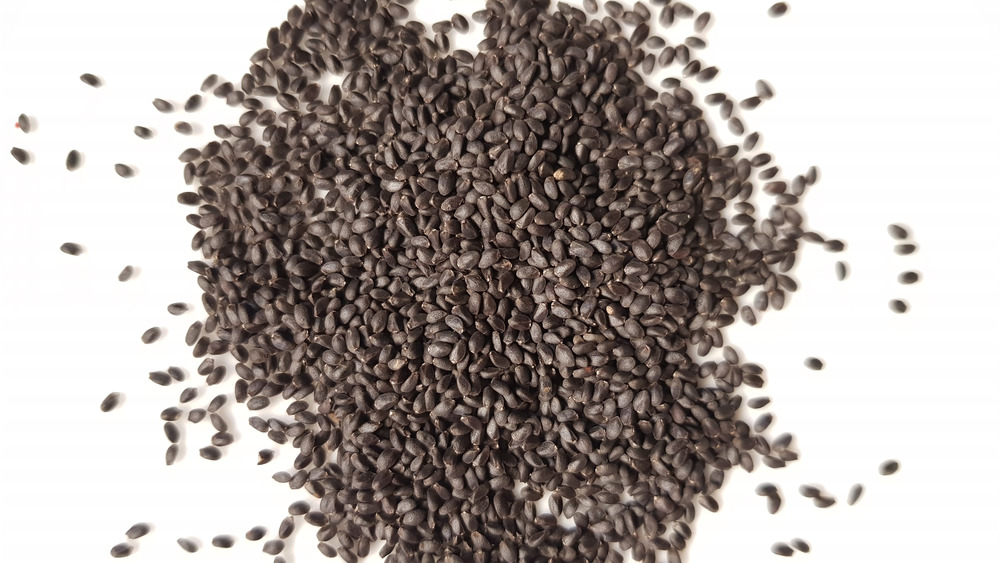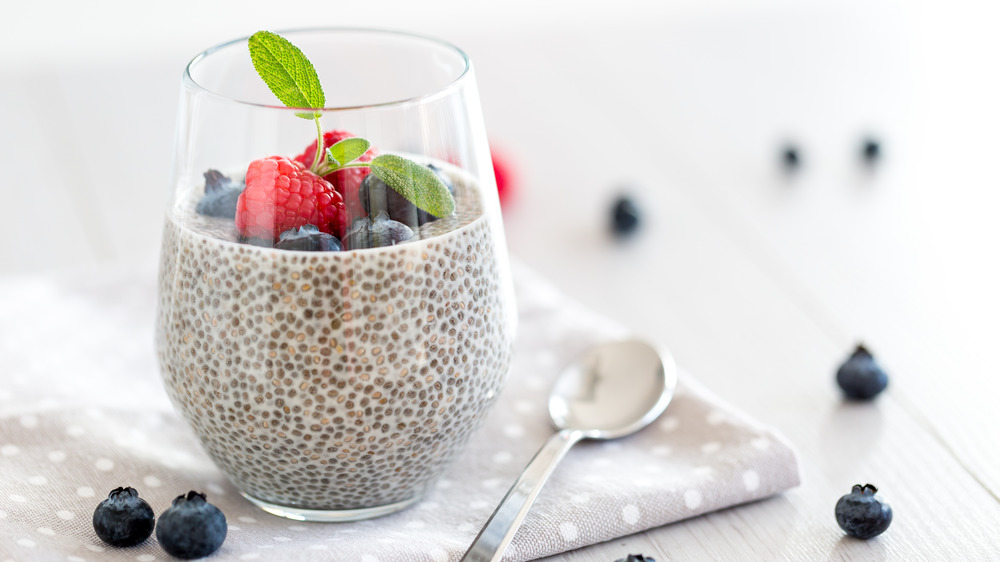Here's What Happens When You Add Basil Seeds To Your Diet
Like most food fads, it appears seeds also can come and go in popularity. And now that the intense hype over chia seeds has settled down, it's time for a new representative to step up to the podium. Enter basil seeds, also known as Sabja seeds. Like chia seeds, they are small, black in color, and boast an impressive amount of nutrients. And while they have been popular in India and Southeast Asia for quite some time, their popularity in the United States is growing. Here is what happens when you add these little wonders to your diet.
According to LiveStrong, one tablespoon of basil seeds includes 60 calories, 2 grams of protein, and 7 grams of dietary fiber. They also contain plant compounds, like flavonoids and other polyphenols, which have been linked to anti-inflammatory effects. A rich nutrient profile is great, but perhaps the most impressive is their possible cancer-killing effect. Healthline states that a test-tube study showed that basil seed extract killed harmful bacteria and triggered the death of cancer cells.
Basil seeds can be used as substitutes, binders, and thickeners
Currently, you can best find these nutritionally potent seeds in Asian food stores or online. The most edible type comes from Ocimum basilicum, which is the plant commonly used to season foods, shares Healthline. Like chia seeds, basil seeds are easy to use and are often soaked or cooked before ingesting. They can also be used as substitutes for sauce thickeners, as a binder in meatballs, a base for pudding, or as the "stick" in sticky fried rice, states LiveStrong.
We know that upon hearing how healthy and versatile these seeds are you'll likely want to start sprinkling, soaking, or blending them into everything — but be careful when introducing them to your weekly menu. Sometimes too much of a good thing can sour the intended effect. Due to the high fiber content of basil seeds, they may cause digestive side effects like bloating, says Healthline. So if you're wanting to bring these into your diet, it's best to use a little bit at first to reduce the chance of bloating and give your gut time to adjust to the extra fiber.
Now that we know the rich nutritional benefits of basil seeds, we can confidently say they deserve their time on the podium.


